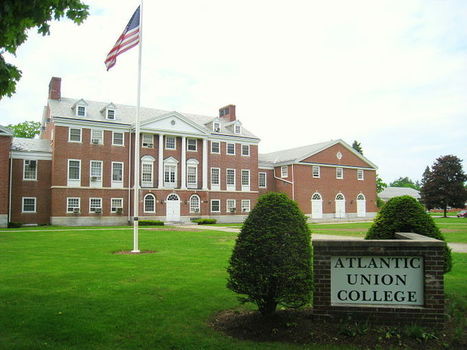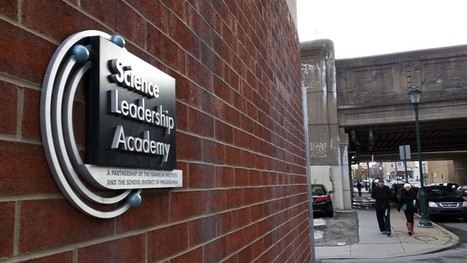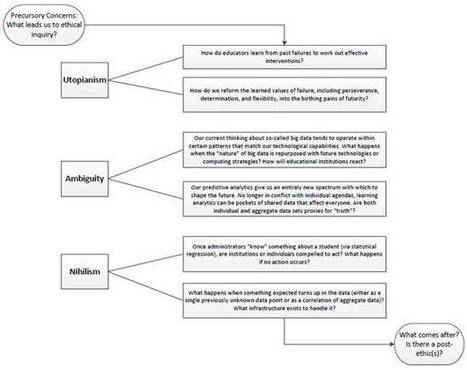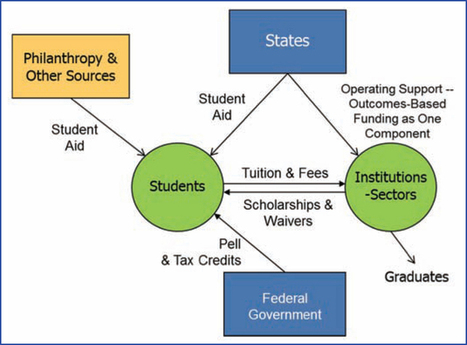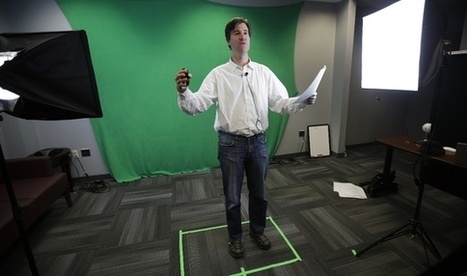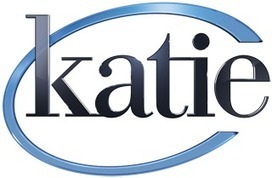Via Bobbi Dunham
Get Started for FREE
Sign up with Facebook Sign up with X
I don't have a Facebook or a X account

 Your new post is loading... Your new post is loading...
 Your new post is loading... Your new post is loading...

Society for College and University Planning (SCUP)'s curator insight,
September 9, 2014 8:24 AM
A nice college of images and info from campus planning and design initiatives down under.

Society for College and University Planning (SCUP)'s curator insight,
September 2, 2014 9:38 AM
And Robert Zemsky says the faculty are sitting on the sideline: “We’re on the sideline. And that’s terrible that the faculty, writ large, are on the sideline.”

Society for College and University Planning (SCUP)'s curator insight,
August 13, 2014 8:50 AM
So, just how are we planning for higher education? What will "higher ed" look like when these kids turn 18 in, what, 2028?

Society for College and University Planning (SCUP)'s curator insight,
July 28, 2014 2:22 PM
A short, new, not-yet-published piece on sale in advance of publication—from our well-received #scup49 plenary speaker, Jeff Selingo.

Society for College and University Planning (SCUP)'s curator insight,
June 18, 2014 10:31 AM
The proposal’s metrics are similar to those that the Obama administration has floated as possible standards for the college ratings system it is currently developing. But instead of universal ratings, the Education Trust paper calls for a focus on the worst-performing institutions in each category. “We support the president’s college ratings proposal in concept,” Dannenberg said in an interview. But, he said, it’s a challenge figuring out how to do that accurately. |

Society for College and University Planning (SCUP)'s curator insight,
September 9, 2014 8:57 AM
The author, James E. Willis, III is an educational assessment specialist at Purdue University.

Society for College and University Planning (SCUP)'s curator insight,
September 3, 2014 7:05 AM
A benefit of SCUP membership. Also available for others as an inexpensive download. Combine it with another SCUP book, A Practical Guide to Strategic Planning in Higher Education by Karen Hinton and you have a reference for your committees.

Society for College and University Planning (SCUP)'s curator insight,
August 18, 2014 10:15 AM
"Dennis Jones, [a frequent SCUP presenter,] is president of NCHEMS, a nonprofit research-and-development center founded to improve strategic decision making in institutions and agencies of higher education. Jones is widely recognized for his work in such areas as developing public agendas to guide higher-education policymaking; financing, budgeting, and resource allocation; linking higher education with states' workforce and economic-development needs; and developing information to inform policymaking.

Society for College and University Planning (SCUP)'s curator insight,
August 5, 2014 12:41 PM
Frequent SCUP speaker, Dennis P. Jones, is quoted as saying that “States are getting more sophisticated about what they’re doing and are crafting models that really reinforce institutional mission differentiation, rather than doing the same thing for everybody.” Jones is president of the National Center for Higher Education Management Systems, whose October 2013 report, “Outcomes-Based Funding: The Wave of Implementation,” examines such policies. “They’re also putting a bigger share of the allocation into outcomes-based funding.” This author concisely organizes this brief and informative resource, from AASCU's Public Policy magazine, under the primary heading of "A More Sophisticated Model," with these bullets.

Society for College and University Planning (SCUP)'s curator insight,
July 11, 2014 9:28 AM
A good paragraph: "Among the many memorable quotes from “The Deep Dive” is David Kelley’s remark that “Everything we create has to go through a design process.” Does that apply to the work of the higher education enterprise? It must. Everything colleges and universities do is a product of design, be it the curriculum, the campus, or all the programming that supports the institution—and the library. Higher education is better known for irrational processes for identifying problems and developing solutions, and that leads to poor design resulting in dysfunctional systems. In 1972 Cohen, March, and Olsen authored an article that described higher education as an “organized anarchy” in which decision making operated much like a garbage can into which multiple and unrelated solutions are dropped in hope of being connected to an existing problem. While not every institution is an organized anarchy, too many lack a systematic, IDEO-like approach to advancing the institution. In a previous essay, I attempted to bring attention to benefits that might accrue from colleges and universities adopting design thinking to tackle problems for which there are no easy solutions. It went mostly unnoticed. Given the many “wicked problems” confronting colleges and universities, higher education could use a new approach."

Society for College and University Planning (SCUP)'s curator insight,
April 29, 2014 10:20 AM
"We set out to investigate the impacts of TNE on the host country, both positive and negative. One of the most striking findings in the study is that, overall, respondents did not believe that the negative features or potential risks of TNE were important or applicable, the exception being the high cost of TNE programmes compared with local programmes. What has come out is that survey respondents believe that TNE is providing increased access to higher education for local students and contributing to improvement of the overall quality of higher education provision. For students, the number-one rationale driving them to enroll in TNE is to improve professional skills for career development, and 61 per cent of respondents believed that studying a TNE programme would increase their earning potential relative to studying a local programme. The research also provides evidence that TNE students understand the importance of awareness and knowledge about international issues and events and they believe that TNE can help them gain this international understanding."
|







